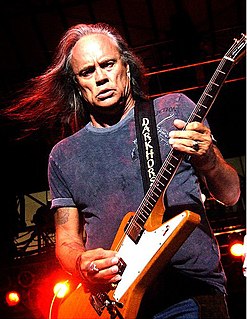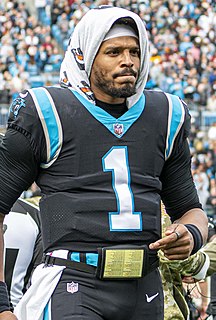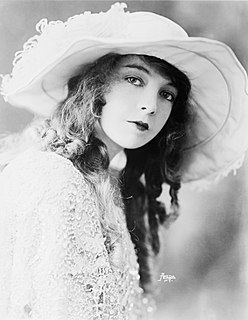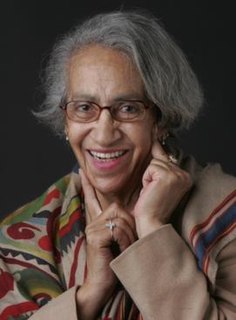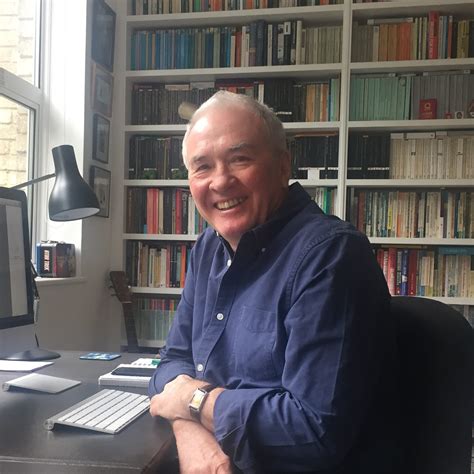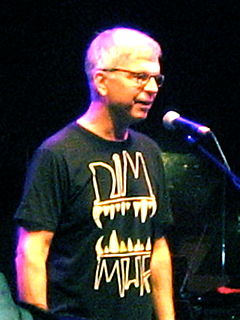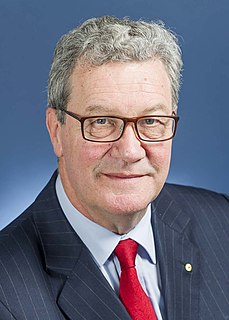A Quote by Sharmeen Obaid-Chinoy
I grew up listening to my grandfather's stories of our musical past. He would often talk about the orchestras that played at concerts and the musicians who played on Sunday evenings on street corners. By the time I grew up in the '80s, all of this was a thing of the past. I lived vicariously through his stories and often wondered what it would have felt like to have been part of his generation.
Quote Topics
About
Been
By The Time
Concerts
Corners
Evenings
Felt
Generation
Grandfather
Grew
Grew Up
His
Like
Listening
Lived
Musical
Musicians
My Grandfather
Often
Our
Our Music
Part
Past
Played
Stories
Street
Street Corner
Street Corners
Sunday
Sunday Evening
Talk
Thing
Through
Time
Up
Vicariously
Wondered
Would
Related Quotes
Originally the structure was . . . a modern narrator who would appear intermittently and talk about his memories of his grandmother, which would then be juxtaposed against scenes from the past. But the stories from the past were always more interesting that the things in the present. I find this almost endemic to modern plays that veer between past and present. . . . So as we've gone on developing GOLDEN CHILD, the scenes from the past have become more dominant, and all that remains of the present are these two little bookends that frame the action.
I would sit on the street corners in my hometown of Indianola, Mississippi, and I would play. And, generally, I would start playing gospel songs. People would come by on the street - you live in Time Square, you know how they do it - they would bunch up. And they would always compliment me on gospel tunes, but they would tip me when I played blues.
I don't think that people are necessarily going to films simply because they were adapted from comics, though I could be wrong. Comics aren't really misunderstood either, they've just been mostly silly for the past century, and those genre-centered stories have found their way into the movie theaters over the past couple of decades because a generation who grew up reading them has, well, grown up.
Well people often ask me how I felt growing up with a father who was a politician and who was often away. But when I'm asked that question I often reflect on my inability really to be able to answer it in any relative sense because I never grew up with a father doing anything else. So I just have no idea what it would be like otherwise.
Families have always been in flux and often in crisis; they have never lived up to nostalgic notions about "the way things used tobe." But that doesn't mean the malaise and anxiety people feel about modern families are delusions, that everything would be fine if we would only realize that the past was not all it's cracked up to be. . . . Even if things were not always right in families of the past, it seems clear that some things have newly gone wrong.
I found a Bill Evans record in the bookcase and was listening to it while drying my hair when I realized that it was the record I had played in Naoko's room on the night of her birthday, the night she cried and I took her in my arms. That had happened only six months earlier, but it felt like something from a much remoter past. Maybe it felt that way because I had thought about it so often-too often, to the point where it had distorted my sense of time.
I know my grandfather drank occasionally socially, what we call "taking a sip." And my father never touched the bottle. He condemned my grandfather for doing that, and his punishment to his father was when my grandfather came to visit him from Georgia, he would not allow my grandfather to preach in his church.Even though my classmates very often drank alcohol in my presence and they would try and get me to join in, I felt, no, I didn't need that.

